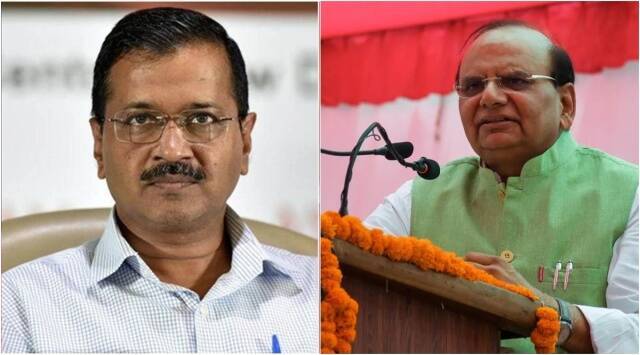The development comes a day after the Centre brought an ordinance to create a National Capital Civil Service Authority that will have the power to recommend the transfer and posting of all Group A officers and officers of DANICS serving in Delhi. 
The SC's May 11 verdict came nearly five years after another Constitution Bench of the court had ruled in favour of the Aam Aadmi Party-led state government in a similar tussle. (File)
The Centre on Saturday approached the Supreme Court seeking a review of its May 11 judgment giving control over administrative services in the National Capital Territory (NCT) to the Government of the National Capital Territory of Delhi (GNCTD).
The development comes a day after the Centre brought an ordinance to create a National Capital Civil Service Authority that will have the power to recommend the transfer and posting of all Group A officers and officers of DANICS serving in Delhi.
Ruling in favour of the GNCTD, the apex court in its May 11 ruling said that “in a democratic form of government, the real power of administration must reside in the elected arm of the state”. The court held that the GNCTD will have legislative and executive control over administrative services in the NCT except with regard to those expressly excluded under List II (State List) of the Constitution – public order, police and land.
A five-judge Constitution Bench presided by Chief Justice of India D Y Chandrachud said in a unanimous decision that “the Legislative Assembly of NCTD (National Capital Territory of Delhi) has competence over entries in List II and List III (Concurrent List) except for the expressly excluded entries of List II” and that “the executive power of NCTD is co-extensive with its legislative power, that is, it shall extend to all matters with respect to which it has the power to legislate”.
The bench also comprising Justices M R Shah, Krishna Murari, Hima Kohli and P S Narasimha ruled that the Union of India has executive power “only over the three entries in List II over which NCTD does not have legislative competence” – public order, police and land. It said that the “NCTD has legislative and executive power over “Services”, that is, Entry 41 of List II of the Seventh Schedule…”. Entry 41 deals with State public services, State Public Service Commission.
The court said, “as we have held that NCTD has legislative power over “services” (excluding ‘public order’, ‘police’, and ‘land’) under Entry 41 in List II, the Lieutenant Governor shall be bound by the decisions of GNCTD on services…”.
However, the May 11 ruling also made it clear that “the executive power of NCTD with respect to entries in List II and List III shall be subject to the executive power expressly conferred upon the Union by the Constitution or by a law enacted by Parliament.












